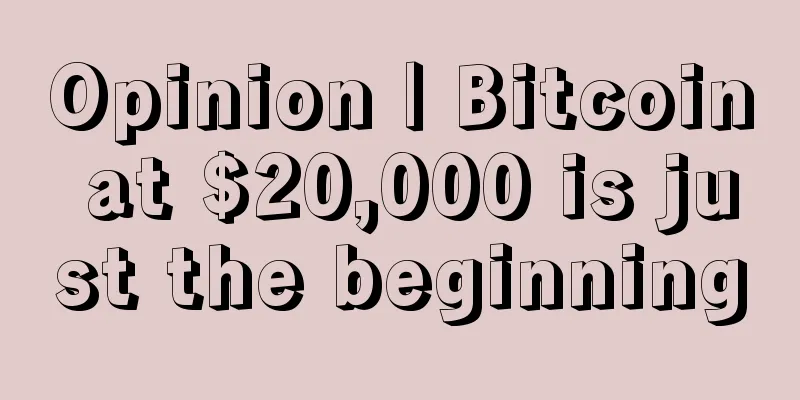Andreas Antonopoulos: Bitcoin will never hard fork

|
The possibility of the Bitcoin network splitting into two incompatible currencies has worried many Bitcoin holders, but Andreas Antonopoulos, author of "Mastering Bitcoin," believes that this situation is "absolutely impossible." In his view, Bitcoin is inherently resistant to controversial hard forks. While attending the 2017 Blockchain Africa Conference, Antonopoulos was asked about his thoughts on Bitcoin hard forks, most likely due to the growing support for Bitcoin Unlimited (BU) among miners. Antonopoulos replied:
Antonopoulos mentioned Ethereum because the cryptocurrency network experienced a controversial split last year. Some community members decided to support a hard fork to recover the funds lost due to the The DAO vulnerability. The current Ethereum network split into ETH and ETC, the latter of which is still using the blockchain that has not rolled back the transaction. Antonopoulos went on to explain why Bitcoin cannot deploy such controversial improvements: Bitcoin is currently a means of storing value, and its market value has recently exceeded $20 billion. He also mentioned the main differences between Bitcoin and ETH at this stage, as well as the maturity of the two systems. A “Second Chance” in the Early Stages of Cryptocurrency DevelopmentWhen Antonopoulos was asked to further elaborate on his views on controversial hard forks in Bitcoin and Ethereum (The DAO hard fork), he responded that as the value of a network increases and more people come to rely on it, controversial improvements are difficult to deploy.
The Bitcoin bug Antonopoulos mentioned was an accident of unrealistic value. Since it was very early in Bitcoin’s development and had a negative impact on all users (except those who exploited it maliciously), fixing it was not controversial. The DAO, mentioned above, was a flawed smart contract that led to Ethereum’s controversial hard fork last year. The issue was centered on disagreements between users, not protocol-level vulnerabilities. ETC users believed that the hard fork would go against Ethereum’s original intention of being an unstoppable, censorship-resistant application platform; this situation was more controversial than Bitcoin’s value overrun. Bitcoin’s value preservation functionIn Antonopoulos’ view, a split of the Bitcoin network is impossible because it would have a negative impact on the value proposition (preservation) of this digital asset.
Antonopoulos added that Bitcoin users are likely to pay higher and higher transaction fees because there is currently no answer to the scaling problem. He said:
The essential difference between Bitcoin and ETH Regarding the controversial hard fork, Antonopoulos ended with the fundamental differences between Bitcoin and ETH.
|
<<: ETH Weekly Report | Wide adjustment at high level, new pattern determines direction
Recommend
Behind the crypto market crash: Concerns about economic prospects and expectations of a Fed rate cut have declined
Preface The US stock market suffered a heavy fall...
Does the mole of crying husband have a big impact on women's fortune?
The Mole of Weeping Husband will affect a person&...
Is it good for a woman to have no flesh on her face? What are the facial features of a blessed woman?
Everyone has different facial features. From the p...
Blockstream purchases $25 million worth of Shenma mining machines from MicroBT
According to BlockBeats, on January 27, Blockstre...
The complete chin of face reading shows personality and emotions. Understand personality by looking at the chin.
People with narrow and round chins If a man has a...
What does a man with a small nose mean?
Man's destiny is determined by heaven and wil...
What kind of woman is rich but not greedy for money?
1. A straight and long nose with full and fleshy ...
The central bank takes comprehensive action! Shanghai and Beijing inspect Bitcoin Bitcoin "flash crash"
According to the Shanghai headquarters of the Peo...
What is the current progress of BTCFi, which the Bitcoin community has been longing for?
Bitcoin’s role in DeFi (decentralized finance) is...
What are the consequences of removing a mole near the mouth?
What are the consequences of removing a mole near...
Does the appearance of parents affect their children?
Does the appearance of parents affect their child...
Scaling Bitcoin Hong Kong Seminar Presentation
The second Scaling Bitcoin seminar was held in Ho...
What does it mean to have a mole on the palm? Is it good to have a mole on the palm?
Regarding the issue of mole appearance, many peop...
How to read the wisdom line in palmistry
In our palmistry, the wisdom line is one of the t...
Could Windows 10 threaten the privacy of your Bitcoin wallet?
Windows 10 has been praised by users for its styl...









